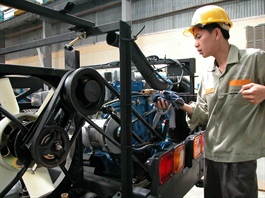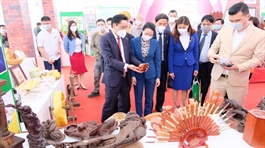Japanese retailers repositioning strategies in Vietnam’s shifting landscape
Japanese retailers repositioning strategies in Vietnam’s shifting landscape
Japanese retailers are changing their business and investment strategies to adapt to Vietnam’s evolving retail landscape.

Sakuko Japanese Store, a Japanese supermarket chain, has officially announced a new brand identity. The rebrand reflects the retailer’s long-term vision of investing in Vietnam’s retail market by providing high-quality Japanese-standard products to local consumers.
After 10 years in Vietnam, Sakuko Vietnam Retail Co., Ltd., the operator of the supermarket chain has set up a strong footprint in the mum and baby market. However, during the pandemic, Sakuko Vietnam recorded strong growth in other segments, especially food, healthcare, and home and life products.
The Japanese retailer pinpointed a lucrative opportunity to promote products in Vietnam beyond the mum and baby segment.Cao Thi Dung, CEO of Sakuko Vietnam said, “The pandemic has completely transformed the retail landscape. As a Japanese retailer, we are looking to capitalise on the customer behaviour changes. In particular, Vietnam customers are becoming more health-conscious as well as mindful of their spending. Sakuko’s goal is to become a bridge to help Vietnamese people purchase and use high-quality Japanese goods at reasonable prices.”
Dung continued, “By refreshing the brand identity with a new logo, we hope to bring a fresh look and impart a meaningful message for Vietnamese consumers. Sakuko Vietnam is positioned to be a go-to destination for families seeking authentic and quality Japanese goods. Our products also retain pricing comparable to supermarkets in Japan thanks to our direct relationships with Japanese manufacturers and trade promotion agencies.”
As of present, Sakuko Vietnam is operating over 30 retail outlets in Hanoi, Ho Chi Minh City, and other localities. The retailer aims to expand its chain to 60 stores in Vietnam by 2025. Sakuko Vietnam also boasts a portfolio of more than 10,000 renowned and high-quality products in seven categories.
Another Japanese retailer AEON Vietnam also made adjustments to its business strategies to keep up with the developments in the retail market. During the pandemic, AEON’s supermarkets and small-scale retail outlets witnessed a huge boost in revenue. Meanwhile, AEON Mall and other shopping malls saw a sharp decline in foot traffic.
Furusawa Yasuyuki, general director of AEON Vietnam, said that customers have changed their shopping behaviour considerably after the prolonged social distancing period, prompting the retail industry to make changes.
AEON Vietnam plans to expand the presence of its convenience store and supermarket chains like AEON MaxValu and AEON Citimart. With regards to shopping malls, the Japanese retailer will focus on improving customer experience and embracing omnichannel retail.
According to Cao Thi Thanh Huong, research manager of Savills Ho Chi Minh City, Vietnam's retail sector is expected to reach new heights thanks to accelerated economic recovery.
The growth in domestic consumer spending will naturally translate into more demand for retail goods and services. To capitalise on Vietnam's growing number of consumers, giant retailers with strong financial backgrounds such as Uniqlo and Muji will expand their physical stores in shopping centres.
Specifically, Uniqlo, the Japanese global apparel retailer, also aims to open several new stores in Vietnam this year. Uniqlo will launch some flagship ones in 2023 towards the 50th anniversary of Vietnam-Japan relations. Meanwhile, Japanese chain retailer Muji has a plan to open its fourth store in Vietnam in the third quarter of 2022.
A survey by the Japan Trade Promotion Organization also reveals that Japanese companies had shifted their focus to Vietnam as a result of production operations being halted because of supply chain disruptions during the health crisis.
About 55.3 per cent of all Japanese companies planned to increase their operations in Vietnam over the course of the next one to two years, the highest percentage in Southeast Asia. In contrast, only 2.2 per cent of Japanese enterprises in Vietnam wanted to reduce their operations, the second-lowest percentage in Asia after Pakistan and the lowest in Southeast Asia.
Speaking at the Vietnam-Japan trade and investment forum in Tokyo last month, Nguyen Hong Dien, Minister of Industry and Trade, called on Japanese firms to increase their investments in Vietnam and expand operations to ASEAN and other markets that sign free trade agreements with Vietnam.
The minister added that Vietnam has a policy of promoting the development of traditional and modern trade including markets, supermarkets, retail stores, and convenience stores. Meanwhile, Japan has strengths in these areas. The two sides can promote cooperation in developing retail channels and e-commerce infrastructure.


















